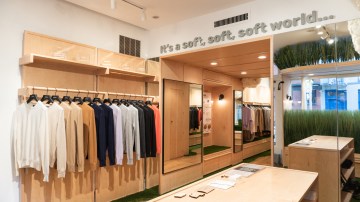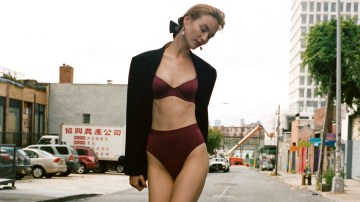 How Birdy Grey drove $2m in revenue by spending $10 a day on Instagram
How Birdy Grey drove $2m in revenue by spending $10 a day on Instagram Birdy Grey launched in 2017 as an affordable solution for bridesmaids’ dresses, selling dresses in a variety of colors and styles direct to consumers for just $99. From the outset, it decided to go all in on Instagram ads to grow, and grow quickly.
 Digitally native brand Almina Concept is using drop-shipping to grow the business
Digitally native brand Almina Concept is using drop-shipping to grow the business As direct-to-consumer brands struggle to make it on their own, often due to sky-rocketing customer acquisition costs, many wind up turning to retail partners to take advantage of their reach. But wholesale can be tricky to navigate for small DTC companies. With drop-shipping, a young brand can worry less about...
 How DTC brands are marketing to Gen X
How DTC brands are marketing to Gen X While plenty of DTC brands use Instagram to win over younger consumers, here's how others are going after Gen-X shoppers.
 The rise of the DTC neighborhood
The rise of the DTC neighborhood Where you once found one or two DTC stores popping up in a neighborhood, customers can now find whole streets lined with brands like Naadam, Everlane, Warby Parker, Brooklinen and Buck Mason. Some are flocking to areas where rent is cheaper, while others are looking for smaller square footage in...
 How The Drop is helping Amazon build up its fashion business
How The Drop is helping Amazon build up its fashion business In May, the company announced The Drop, allowing influencers from around the world to design their own limited-edition collections (on average between nine and 13 pieces), which are then sold exclusively through Amazon. The first collection dropped in June. In 2018, Amazon reportedly generated $35 billion in sales from apparel and footwear, per...
 Can companies with a ‘one size fits most’ approach survive in a world of inclusivity?
Can companies with a ‘one size fits most’ approach survive in a world of inclusivity? While Brandy Melville focuses on teens of a limited size range, other teen competitors, from American Eagle and sister brand Aerie to newcomers like underwear company Parade, are winning over Gen-Z customers who want to shop for a brand that feels more inclusive, especially around size.
 DTC wedding dress company Anomalie wants to be the Stitch Fix of bridal
DTC wedding dress company Anomalie wants to be the Stitch Fix of bridal The wedding dress shopping experience is broken. That realization is what motivated Leslie Vorhees Means to launch direct-to-consumer wedding dress company Anomalie. On Tuesday, the company is launching a new dress design tool for brides to make wedding dress shopping simpler, and achievable online.
 1 year in: After rethinking production and inventory, Choosy is on track to do $6 million in sales
1 year in: After rethinking production and inventory, Choosy is on track to do $6 million in sales At launch, Choosy was trying to be more of a platform, selling lookalike pieces of popular styles at a fraction of the originals' cost. It didn't hold any inventory and instead took pre-orders for styles, which meant customers would sometimes wait three-plus weeks for a product to be delivered. Each...
 Cuup is using video conference-based bra fittings to drive sales
Cuup is using video conference-based bra fittings to drive sales Two-year-old DTC lingerie company Cuup thinks it has the answer to helping customers find their perfect bra. Rather than relying on a ton of data, technology and fit quizzes, the company is turning to one-on-one video chats and its team of "fit therapists” to solve some women’s biggest fit problems.
